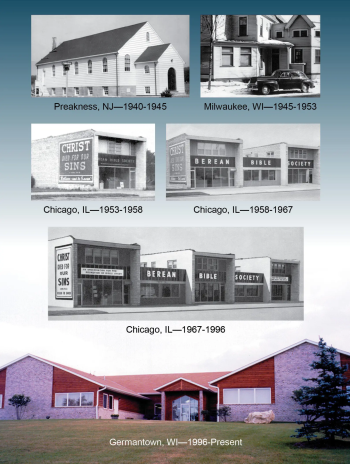There seems to be some confusion about the meaning of Hell and who goes there because of the way the Hebrew word Sheol and the Greek word Hades have been translated in our English Bibles. Since this confusion has led some into an erroneous understanding of what the Bible actually teaches about the intermediate state and the final state of the dead, we think that it is important that we address this subject here.
Sheol is found in the Bible sixty-five times. It is translated “the pit” three times, “the grave” thirty-one times, and “hell” thirty-one times. Hades is used eleven times, being rendered “hell” ten times and “grave” once. Adding to the confusion is that two other words are also translated hell in the New Testament. These are Tartarus, which is found once and Gehenna, which is used twelve times.
The term “Hell” is commonly understood to mean a place of torment where the souls of the wicked go after physical death. This is true. However, because Hades in the New Testament and Sheol in the Old are variously rendered hell or grave, there has been some misunderstanding about what hell and the grave are. Before looking at these words though, we should first give our attention to the Greek word Gehenna, which is always translated hell and used in reference to the Lake of Fire. It is found in Matthew 5:22,29,30; 10:28; 18:9; 23:15,33; Mark 9:43,45,47; Luke 12:5; and James 3:6.
THE FINAL HELL
The Lake of Fire, or Hell, is a literal place of everlasting fire that was originally created by God as a place of punishment for Satan and the angels that followed him in his rebellion against God (Mat. 25:41). Because it is referred to as the place of “outer darkness” (Mat. 8:12; 25:30), we believe that it is most probably located at the farthest reaches of the creation. Gehenna is described in Scripture as a “furnace of fire” (Mat. 13:42); “everlasting punishment” (Mat. 25:46); “the mist [gloom] of darkness” (II Pet. 2:17); the “hurt of the second death” (Rev. 2:11 cf. 20:6,14; 21:8); “a lake of fire burning with brimstone” (Rev. 19:20; 20:10; 21:8).
While Hell was created for Satan and the other fallen angels, the unsaved of humanity from all ages will be with them in this place of torment where “there will be wailing and gnashing of teeth” (Mat. 13:42). This is the “everlasting reward” of all that die in their sins.
While there is no one in the Lake of Fire at this time, it will one day hold a vast multitude. The first residents of this place of righteous retribution will be the Beast (Antichrist) and the False Prophet who, at the end of the Tribulation, will be “cast alive into a lake burning with brimstone” (Rev. 19:19-20). Joining them will be the unsaved of the nations who survive the Tribulation (Mat. 25:31-32,41-46). Also, at Jesus Christ’s return to earth, the rebel Israelites, i.e. unbelieving Jews, who survive the Tribulation, will be denied entrance into the Millennial Kingdom, no doubt to join their Gentile counterparts in the “place of everlasting fire” (Eze. 20:33-38; Mat. 7:21-23; cf. Mat. 24:29-31,45-51). Then, at the end of the Millennial Kingdom of Jesus Christ, Satan will be “cast into the lake of fire and brimstone, where the beast and the false prophet are, and shall be tormented day and night forever and ever” (Rev. 20:10). And finally, the unsaved dead of all ages will be raised and judged at the Great White Throne by Jesus Christ and then cast into the Lake of Fire (see Rev. 20:11-15).
PRACTICAL APPLICATION FOR TODAY
A proper understanding of what the Bible teaches about Hell, Sheol, Hades, and the Grave
dispels confusion over what happens to the soul at the time of physical death and guards against being led astray by those teaching the false doctrines of soul-sleep, eradication of the soul, the universal reconciliation of mankind, and the annihilation of the lost. All of these erroneous doctrines are of Satan, used of him to dishearten believers and blind the lost to the reality of the cost of spurning the Gospel of Jesus Christ. Our thinking, and therefore our life on a day-to-day basis, is influenced by what we believe. While some of the false doctrines mentioned above are diametrically opposed to each other, they still have one thing in common. They subvert the truth of the immortality of the soul.
There seems to be some confusion about the meaning of Hell and who goes there because of the way the Hebrew word Sheol and the Greek word Hades have been translated in our English Bibles. Since this confusion has led some into an erroneous understanding of what the Bible actually teaches about the i

bereanbiblesociety.org





